Finance Minister Edward Scicluna this evening presented the budget for 2019 in Parliament.
Before going to the House of Representatives, the minister presented the budget to the President of the Republic, Marie Louise Coleiro Preca, who signed the relevant documents.
Below is a minute by minute, in reverse order, of the main points made by Scicluna in his two-hour speech.
8.39pm: We are working on a reform to have a better representation of women in Parliament. Changes will be presented and later included in the Constitution.
8.38pm: We will have a plan to tackle human trafficking and we will be showing zero tolerance with traffickers
8.33pm: As from next year, all secondary students will be able to visit all Heritage Malta sites free of charge together with two adults, who will also have a free entry.
8.30pm: The government continues to plan for an indoor pool at Tal-Qroqq. Government will continue its fight against corruption in sport through the setting up of an Integrity Commission.
8.27pm: Government will be investing in more medicines to improve medical services. New treatment for cancer will be provided. More investment will be made in the cure of hepatitic C and HIV with the aim of eradicating this disease from Malta.
8.24pm: A car park for 500 cars is planned for Mater Dei Hospital.
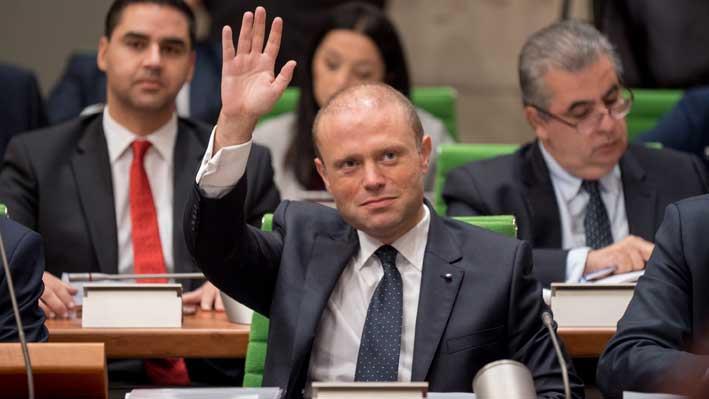
8.22pm: Government will be investing in a mental health clinic in the north of Malta. A specialised clinic providing sensory integration therapy will be developed at the Marsa primary school.
8.19pm: An educational campaign for a balanced diet will be launched. Payment for MATSEC and SEC exams will be abolished from next year.
8.16pm: Educators will continue to be trained in new teaching methods.
8.15pm: The geological studies for the Malta-Gozo tunnel has been finalised and will form the basis for the design of the tunnel.
8.14pm: Masterplans for Marsalforn and Xlendi will be drawn up. The Marsalforn breakwater will be rebuilt.

8.10pm: Government will be giving a 1.50 euro per day compensation to Gozitan workers who organise collective transport. 3,000 workers in the private sector will have their ferry ticket refunded under the Gozitan Works Subsidy scheme.
8.09pm: Reimbursement for Gozitan patients undergoing treatment for cancer at Mater Dei Hospital will be extending to an adult accompanying the patient.
8.06pm: The Malta Residency and Visa Programme will be renewed to remain competitive in the sector.
8.05pm: The Individual Investor Programme will be strengthened. Studies show that Malta has the most rigorous due diligence process, making it an exclusive programme. The benefits received go beyond financial aspects. Malta is attracting new investment, talent and human resources.
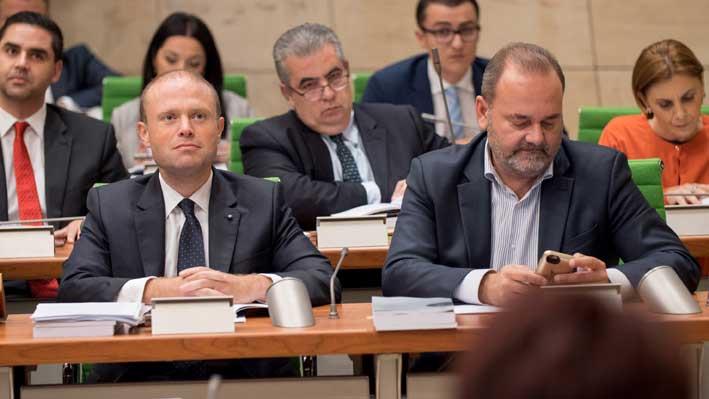
8.04pm: A project brief has been commissioned to establish what kind of buildings are needed at the Corradino Correctional Facility.
8.02pm: Facial recognition will be introduced in Paceville where there is a need for better security.
8pm: The police Force will have a new Command and Control Room and police cars will be modernised. A 10-year-plan for the regeneration of the Civil Protection Department will start.
7.58pm: Government will continue to invest in equipment for the Customs Department, including a tunnel x-ray van for the airport, and to improve scanning facilities at the Freeport.
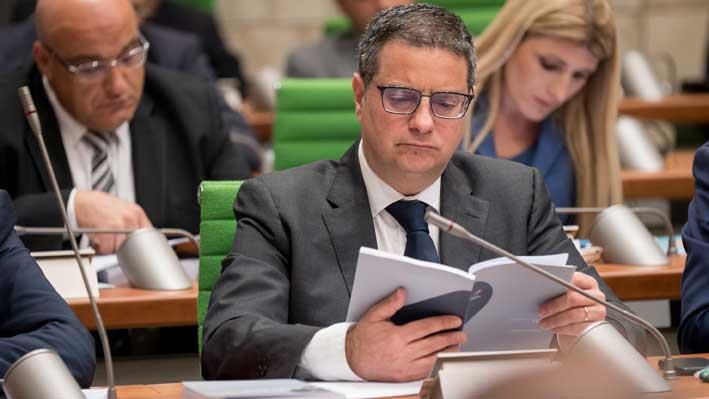
7.55pm: We will introduce a fund to encourage local councils to propose initiatives for a better lifestyle.
7.53pm: There are plans to make bays in Rinella (Kalkara), Fajtata (Marsascala) and St George's (Birzebbuga) bigger. An embellishment project for Paceville is being planned.
7.51pm: Malta will aim to increase its connectivity with Eastern Europe.
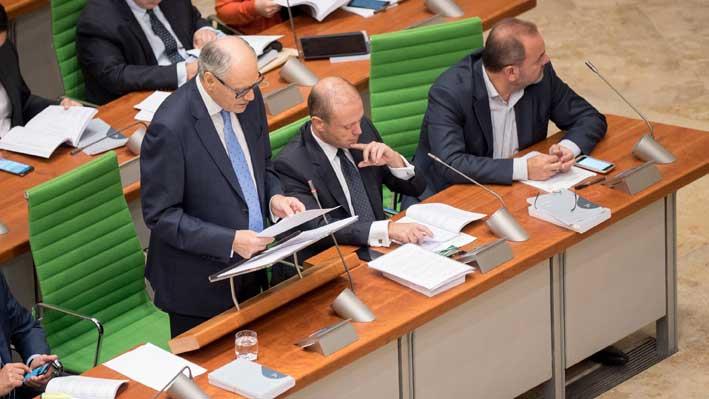
7.49pm: We are in the process of modernising Air Malta fleet. The aim for next year is to consolidate what has been achieved, also given the fact that the airline ended the year without a deficit.
7.46pm: The Malta Medicines Authority will continue to develop the regulatory structure for use of cannabis for medical use.
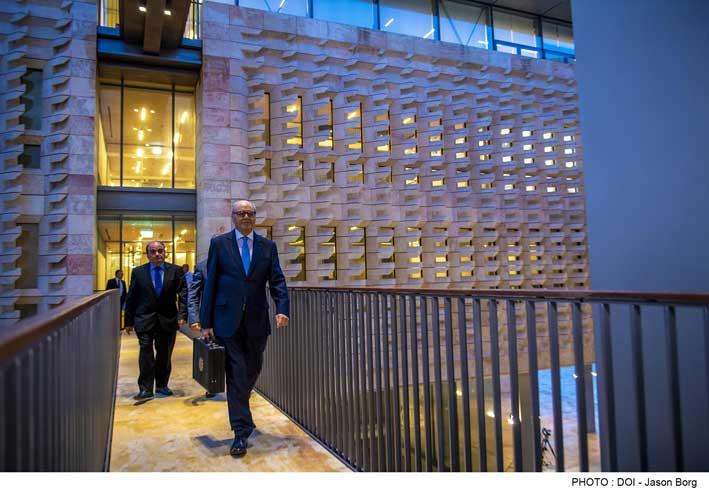
7.43pm: During the past year Malta passed three laws on blockchain technology, making Malta the first country to provide a legal framework in the sector. These laws give protection to the investor and consumer. The next steps will be to provide a legal framework in areas such as articifical intelligence and Internet of Things.
7.41pm: The Malta Stock Exchange will continue its work to open up to companies that operate in the blockchain and cryptocurrencies sector.
7.38pm: During 2017, we finalised the results of an evaluation known as National Risk Assessment, and we will implement 54 measures over three years to combat money laundering.
7.35pm: Government will not tolerate tax evasion and tax avoidance. We are in favour of profitable businesses but we will not allow anyone to abuse our system. We will cooperate with countries who are committed against tax abuse, will strengthen the regulatory structure and increase transparency in our tax systems.
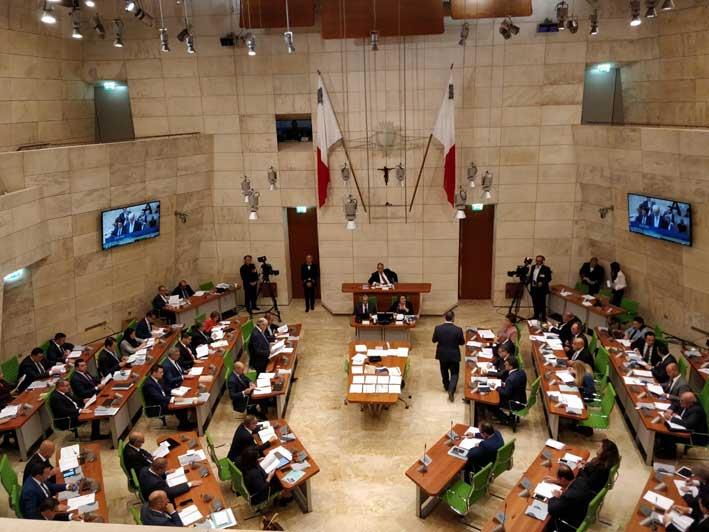
7.33pm: Work on the building of a reverse osmosis plant in Hondoq ir-Rummien will continue. A tunnel linking the reverse osmosis plant at Pembroke and the Ta' Qali reservoirs is in the making. Government will be working on a study to curb road flooding.
7.30pm: Government will continue to guarantee that prices of fuel and energy will be fixed for long periods. The government will also promote use of renwable energy. Enemalta will invest in its distribution centres in Paceville, Marsascala and Kappara.
7.25pm: Discussions will start on a scheme for the return of drink bottles. The government will also focus on noise pollution which is currently not covered by laws. Trees will be planted for every newborn and, as from next year, for every new car on the road.
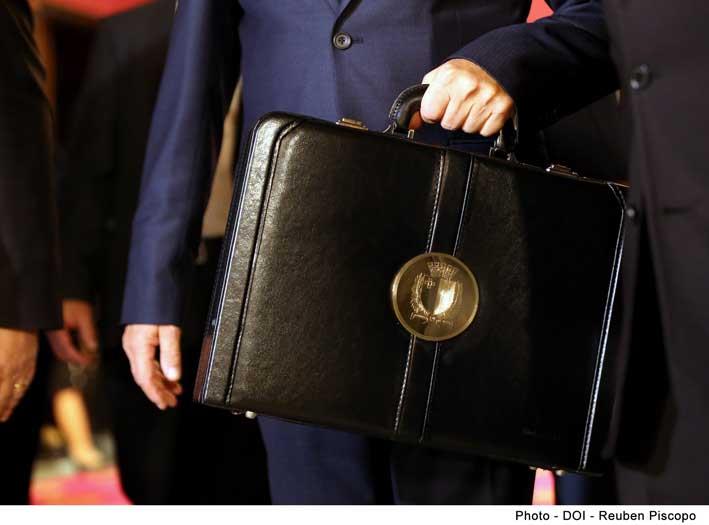
7.24pm: Government will continue to plan for the building of a new material recovery facility which will replace the one destroyed in a fire. To complement it, a process to have a multi-material recovery facility will be initiated. The government will intensify is work to have waste separated at source.
7.21pm: Parents of children still at school are saving 700 per year on costs related to school transport. Electric cars will continue to be exempt from tax.
7.19pm: Government is planning to offer incentives to private entrepreneaurs who are interested in developing parking areas. Linja Card will now be available also to 14- and 15-year-olds, apart from 16-20 as was the case in the past year.
7.16pm: Government will continue to invest on road infrastructure. The 700 million euro project on road reconstruction has started, and next year 100 million will be spent in this regard. Open air areas will be converted into public gardens, with an investment of one million.
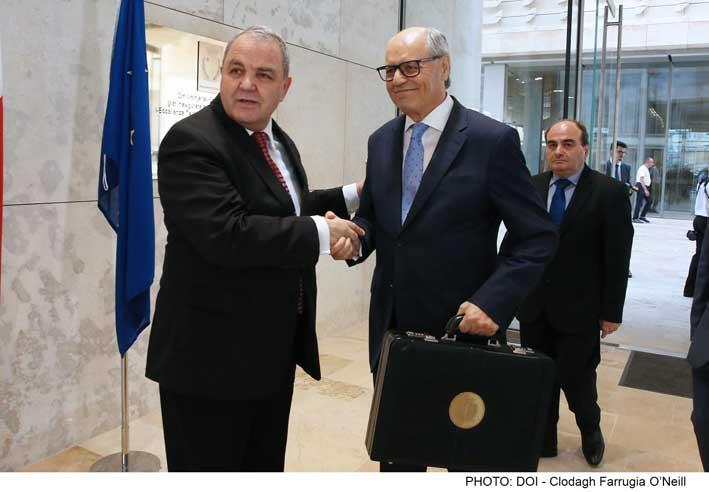
7.15pm: All housing schemes introduced in the past years will be renewed for next year.
7.11pm: People over 40 years of age are finding it hard to take loans on new property. A scheme will be introduced to allow buyers to pay half the price of the new property, with the rest being given out as a loan with the government to pay the relevant interest.
7.10pm: The government wants to introduce a system offering a fiscal incentive to owners who own property and rent if for long periods.
7.07pm: Government committed to sole problems related to social housing and the rental market. As from next year, means testing for social housing will be eliminated, and be replaced by two criterias for eligibility. The benefits will range from between 3,000 euros and 5,000 euros.
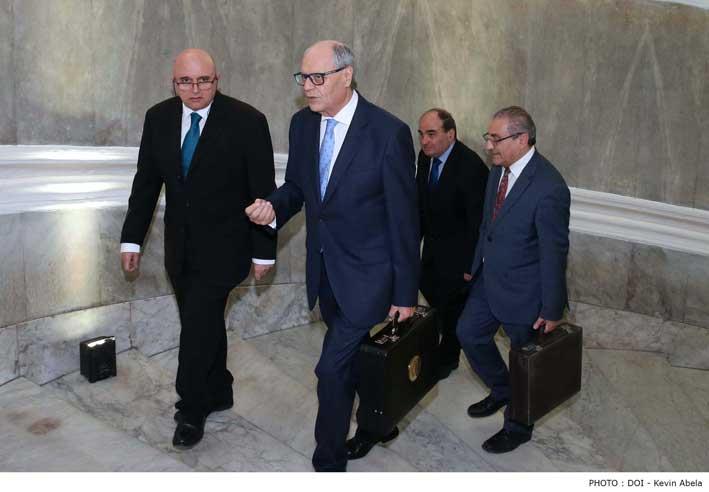
7.06pm: People who bought cars in 2008 will be getting the VAT paid on registration.
7.04pm: Tax refunds for couples who we will go up to a maximum of 2,000 euros. VAT on e-books and musical instruments will be reduced to 5 per cent.
7.03pm: Free transport to school children will continue. Tax exemption to families whose children attend private schools will increase to 1,600 euros (kindergarten), 1,900 euros (primary) and 2,600 (secondary)
7.01pm: No means test will be needed for relatives who take care of elderly people in their home. Elderly people who choose to continue living in their home will also be receiving benefits. Government will also be offering incentives to encourage more private pensions.
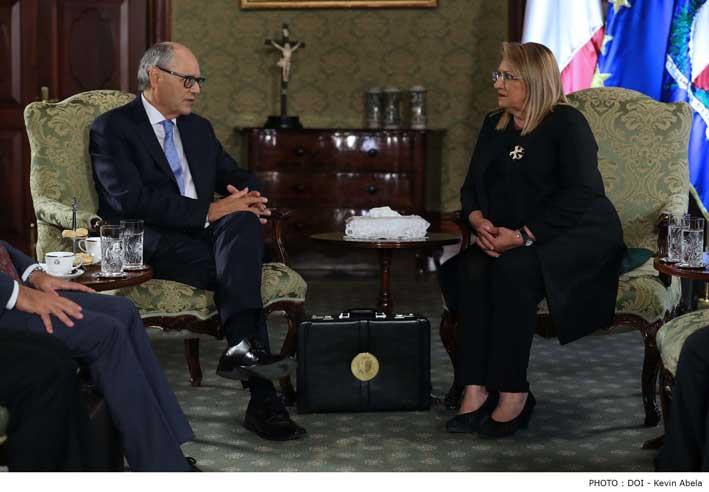
7pm: Disability assistance will be receiving 150 euros (instead of 140) as from January, and the system will be widened to cover another 600 people. Allowance to families with children having a disability will increase to 25 euros per week (up from 20)
6.58pm: 11 million euros will be allocated to rectify injustices in the social services system. Savings bonds open to people over 62 years of age will be launched again.
6.55pm: People in government employment who would like to stay on in their job after reaching pensionable age will have the opportunity to do so.
6.54pm: Pensions will increase again. Pensioners will get 2.17 euros per week extra over and abaove the cost of living adjustment. 92,000 will benefit. The tax system will be adjusted to reflect the increase. Services pensions will rise by 200 euros. All people over 75 years of age will continue to receive a benefit of 300 euros.
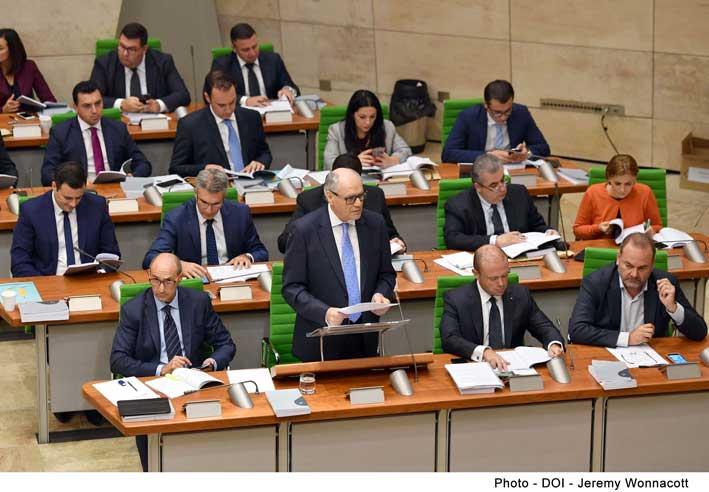
6.53pm: Adult couples who suffer from chronic diseases will have their medial assistance increased by 5.14 euros a week.
6.51pm: Single workers whose income does not exceed 9,100 euros will not be taxed. Benefits will increase for workers who suffer an injury.
6.50pm: Workers will be getting an income tax refund, a totla of 11.5 million euros.
6.49pm: Children's allowances will be increased for the first time in 11 years for families with an income of less than 20,000 euros for a maximum of 96 euros per child, a measure that will be for the benefit of 24,600 children.

6.48pm: Workers will be given a 2.33 euros a week. An extra day will be added to vacation leave, for a total of 26. People on the minimum wage will be gettinf an extra increase of three euros per week.
6.47pm: Next year we are estimating a surplus of 1.3 per cent while public debt will gow down to 43.8 per cent.
6.46pm: The International Monetary Fund reviewed global growth estimate to 3.7 per cent, mostly because of Brexit and the introduction of new tariffs. EU and eurozone economies are expected to grow by 2 per cent. In Malta we expect a 5.3 per cent increase in real terms and 7.7 per cent in nominal terms. Employment is expected to rise by 3.7 per cent and unemployment will fall to 4.3 per cent. Inflation will be around 1.9 per cent. Private consumption will grow by 4.1 per cent.
6.45pm: The private sector generated 90 per cent of new jobs. We have achieved a surplus for the third year running. Public debt has dropped to nearly 47 per cent of GDP.
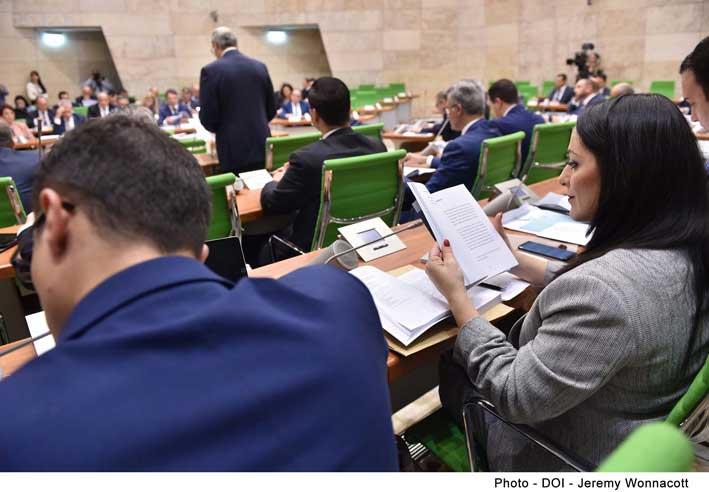
6.44pm: The number of people in employment exceeded 200,000 and the lowest unemployment rate ever was reached at 3.8 per cent in August. Youth unemployment dropped to 8.8 per cent.
6.43pm: During 2017, the Maltese economy in real terms rose by 6.7 per cent while in the first half of 2018 it grew by 5.4 per cent. The EU has a 2.2 per cent average growth. Private consumption rose by 6 per cent.
6.42pm: The government will be ensuring that public finances remain sustainable; we have achieved a surplus for the third year running. At the same time the government will maintain its promise and for the second time in a row will not be introducing any new taxes.
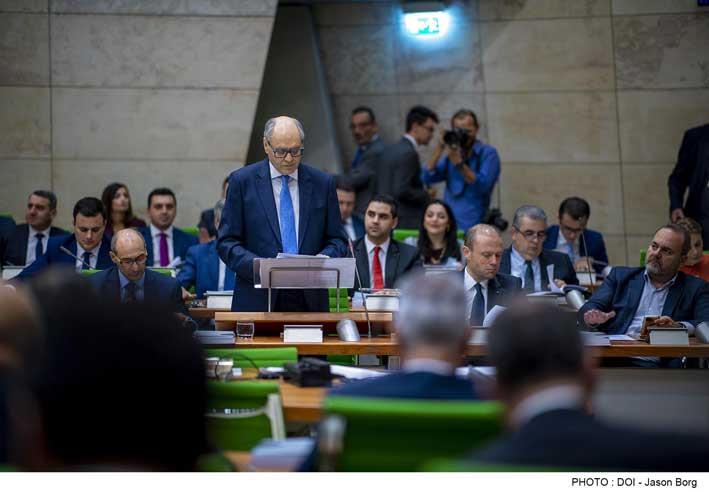
6.41pm: With a strong economy, the government will be introducing measures to improve the quality of life.
6.40pm: This has meant that there has been an unprecedented drop in unemployment. Families suffering from material deprivation has fallen from 20 per cent in 2012 to 8 per cent in 2017.
6.39pm: Families with low income have the opportunity to become part of the tapering programme and benefit from social measures. We have a historic rate of 71 per cent participation in the employment world.
6.38pm: Many women and young people have found employment. Families are benefiting from measures such as free child care, breakfast club, afternoon school services and a maternity leave fund.

6.37pm: Year after year the country is achieving better results – economic growth, increase in employment, reduction in unemployment, budget surplus, reduction in debt, increase in local and foreign investment, increase in private consumption, increase in exports and tourism growth. This contrasts sharply with other European countries and with what used to happen before 2013.
6.36pm: This is the second budget of the legislature. The government kept up its vision to put Malta among the best countries in the European Union, from an economic and social point of view. This vision has become a reality and is being taken for granted.